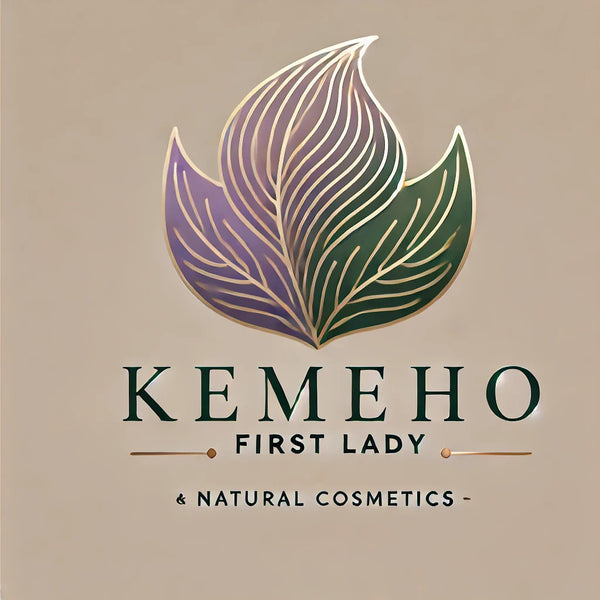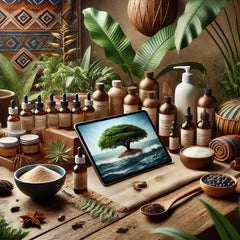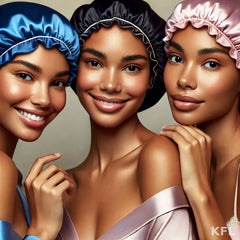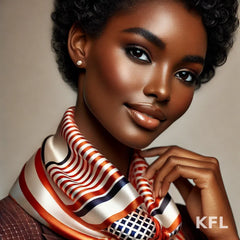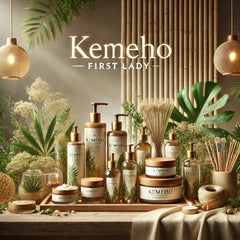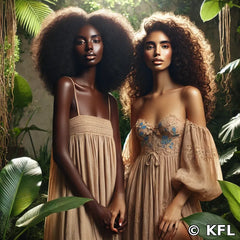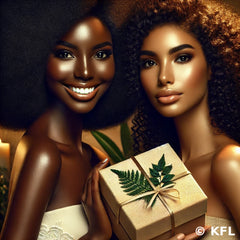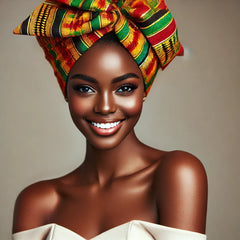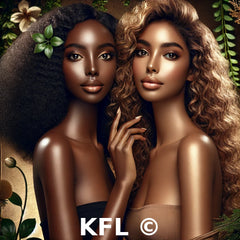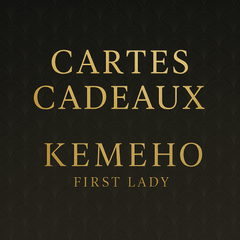
Ancestral African beauty rituals and their modernization
Share Label
For millennia, African peoples have developed natural and sophisticated beauty rituals, rooted in the use of plants, precious oils, and ancestral techniques. Today, these traditions are making a comeback, integrated into modern cosmetics and natural care routines. Let’s explore these beauty secrets and their evolution over time.
1. Skincare: A Legacy of Nature
African women have long turned to the power of nature to maintain their skin.
- Shea butter: Used for centuries, it hydrates, protects, and soothes the skin. Even today, it remains an essential ingredient in body care products.
- Ghassoul clay and kaolin: Highly prized in North and West Africa, these mineral clays purify the skin and absorb excess oil.
- Baobab and argan oils: Rich in antioxidants, they are known for their regenerative and anti-aging properties.
- Honey and plant-based masks: Honey, often blended with local plants like hibiscus, is used to brighten and nourish the skin.
2. Secrets to Healthy Hair: Oils and Ancestral Techniques
Hair has always been a symbol of beauty and social status in Africa.
- Chebe oil: Used by Chadian women, it promotes hair growth and prevents breakage.
- Henna and Ayurvedic powder masks: A strengthening treatment that fortifies the hair shaft.
- Protective styling: Braids, twists, and locs help minimize breakage and shield hair from dryness.
- Plant-based washing: Instead of harsh shampoos, African women use moringa leaf decoctions, hibiscus, or black soap to cleanse their scalp.
3. Traditional Makeup and Adornments
- African kohl: Used in North and Sub-Saharan Africa, it protects the eyes from infections while enhancing their appearance.
- Henna tattoos: Found across various African cultures, they symbolize femininity and spirituality.
- Waist beads and traditional jewelry: Worn around the waist, neck, or hair, they are both aesthetic and culturally meaningful.
4. From Ancestral to Modern: The Revival of African Cosmetics
Today, African beauty rituals are inspiring many brands to bring these traditions to a modern audience.
- Natural cosmetics based on African plants: Many brands highlight the benefits of shea, moringa, or marula in their products.
- Back to minimalist care: The “slow beauty” trend promotes the use of pure, raw ingredients, reminiscent of traditional African skincare.
- The rise of Afro-centered brands: More African entrepreneurs are launching their own cosmetic lines, showcasing local resources and ancestral expertise.
Conclusion
African beauty rituals are more than just aesthetic practices; they represent ancestral knowledge, respect for nature, and a strong cultural identity. Today, these traditions are being reimagined and adapted to modern needs, proving that African beauty still has much to offer the world.
What African beauty rituals do you incorporate into your routine? Share your experience in the comments!
Which African beauty rituals do you include in your routine? Share your experience in the comments!
📢 Want to learn more about African history and culture? 🌍✨ Explore our Africa Travel Guide and discover fascinating traditions, iconic landmarks, and tips for an authentic journey. Click here to learn more 👉 Africa Travel Guide
